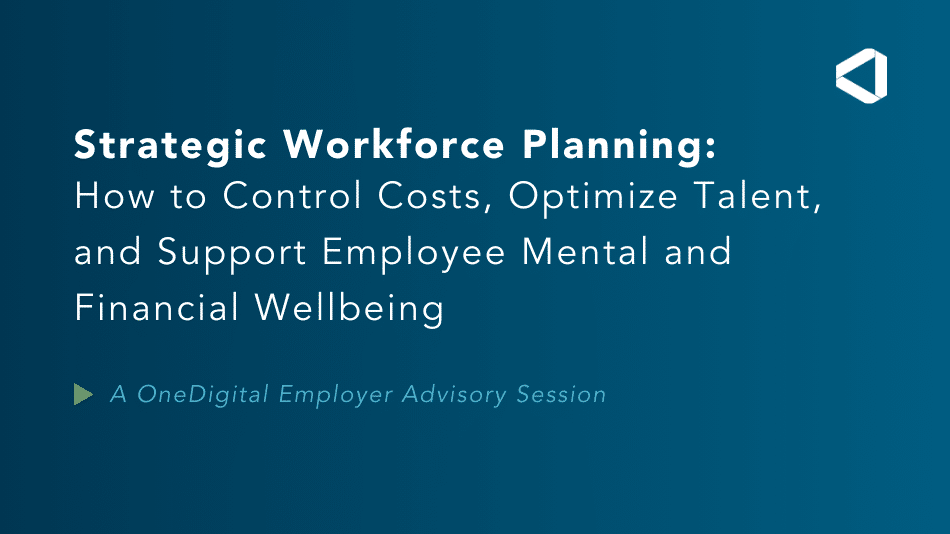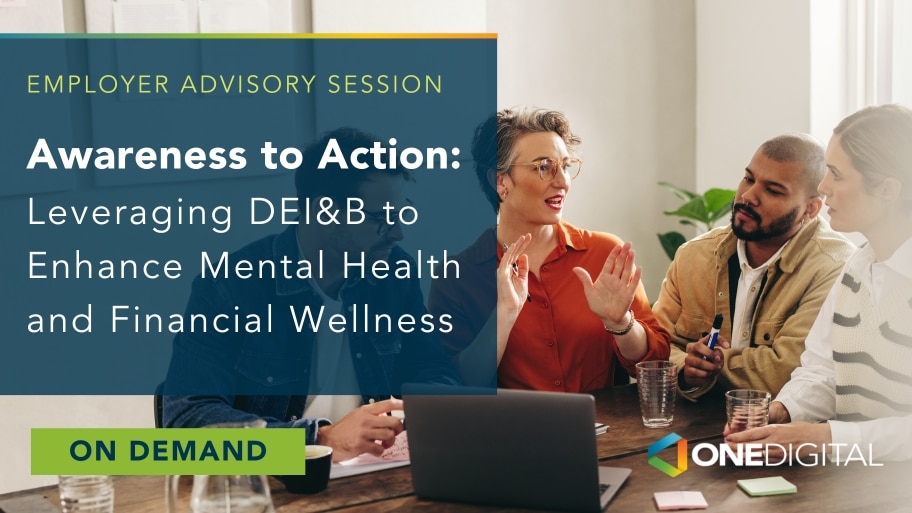Better Benefits, Healthy People, Lower Costs
It’s Time to Take Control of Your Financial Wellbeing
It’s Time to Take Control of Your Financial Wellbeing
The world is changing rapidly, and the financial landscape is no exception. The rise of technology, the changing nature of work, and the globalization of the economy have all created new challenges and opportunities for individuals and families.
In this environment, it is critical to be in control of your own financial wellbeing.
Financial literacy is the ability to understand and make informed financial decisions, and it is more important than ever before—not only for achieving personal financial success, but also to help strengthen overall economic stability.
Why is being financially literate so important?
Financial literacy is a critical skill for all ages and is incredibly important for a number of reasons. First, it can help you make better financial decisions throughout your life, but with confidence. This includes budgeting, saving, investing, and choosing the right financial products and services for you and your lifestyle.
Second, financial literacy can help you avoid debt and financial problems. By understanding the risks and consequences of debt, you can make informed choices about borrowing money and avoid getting in over your head.
Third, financial literacy can help you build wealth and achieve your financial goals. By making sound financial decisions and investing your money wisely, you can build a secure financial future for yourself and your family for years to come.
How to best plan for the future
There are a number of key factors to keep in mind when planning for the future. When it comes to your finances, some of the most important considerations include:
-
Your financial goals: What do you want to achieve financially? Do you want to buy a home? Retire early? Save for your children's education? Once you have a clear idea of your goals, you can start to develop a thoughtful and actionable plan to achieve them.
-
Your income and expenses: It is essential to understand not only how much money you are earning each month, but also how much you are spending. This will help you create a realistic budget and track your progress towards your financial goals.
-
Your debt: If you have debt, it is important to have a plan to pay it off. This may involve making additional payments each month or looking into ways to consolidate your debt at a lower interest rate.
-
Your investments: If you have money to invest, you should focus on choosing investments that are appropriate for both your risk tolerance and financial goals.
-
Your insurance: Having the right insurance coverage can protect you from financial hardship when faced with an unexpected event such as a job loss, illness, or accident. You can also use life insurance for retirement. Life insurance policies can provide financial protection for your loved ones if you die unexpectedly, but they can also be a source of income in retirement. Whole life insurance policies build cash value over time, which you can withdraw or borrow against in retirement.
Budget, save, and invest wisely for long-term success
Budgeting, saving, and investing are three key components of financial planning—and understanding how they work together is essential.
-
Budgeting: A budget is a plan for how you will spend your money each month. It can help you track your income and expenses, and help ensure you are not spending more money than you are earning. There are a number of different budgeting methods available, so find one that works for you and stick to it.
-
Saving: Saving money is important for a number of reasons. It can help you reach your financial goals, such as buying a home or retiring early. It can also provide a financial cushion in the event of an unexpected expense, such as a job loss or medical emergency. There are a number of different ways to save money, such as setting up a savings account or investing in a retirement account.
-
Investing: Investing is the process of putting your money to work to grow your wealth over time. There are a number of different investment options available, such as stocks, bonds, and mutual funds.
Financial literacy for kids and young adults
I’m a strong believer that it is never too early to start teaching kids about money. Do you remember learning about how to budget, save, or invest in school? I would imagine the answer is likely no—yet those are things that every person experiences needing to understand into their adult life. That’s why it’s important to foster education and help build healthy financial habits early. Even young children can and should learn about the basics of saving and spending. Then, as kids get older, they can learn more complex financial concepts, such as budgeting, investing, and building credit.
Delving into the world of finances can seem intimidating if you don’t have a solid foundation of understanding, but everyone needs to start somewhere. We can all play an important role in educating ourselves, and also promoting financial literacy to the younger generations. Knowledge is power, and by investing in financial literacy, you can achieve your goals in order to build a more prosperous future.
At OneDigital, we believe saving and investing should be easier for everyone. Visit our Financial Academy, and find resources to help you manage your money more confidently and reach your goals.
Investment advice offered through OneDigital Investment Advisors LLC, an SEC-registered investment adviser and wholly owned subsidiary of OneDigital.




